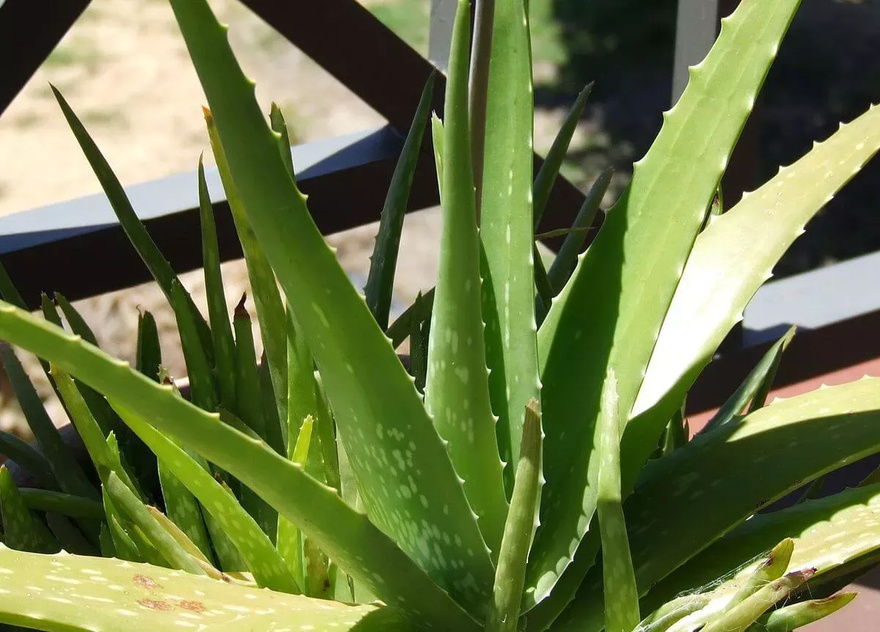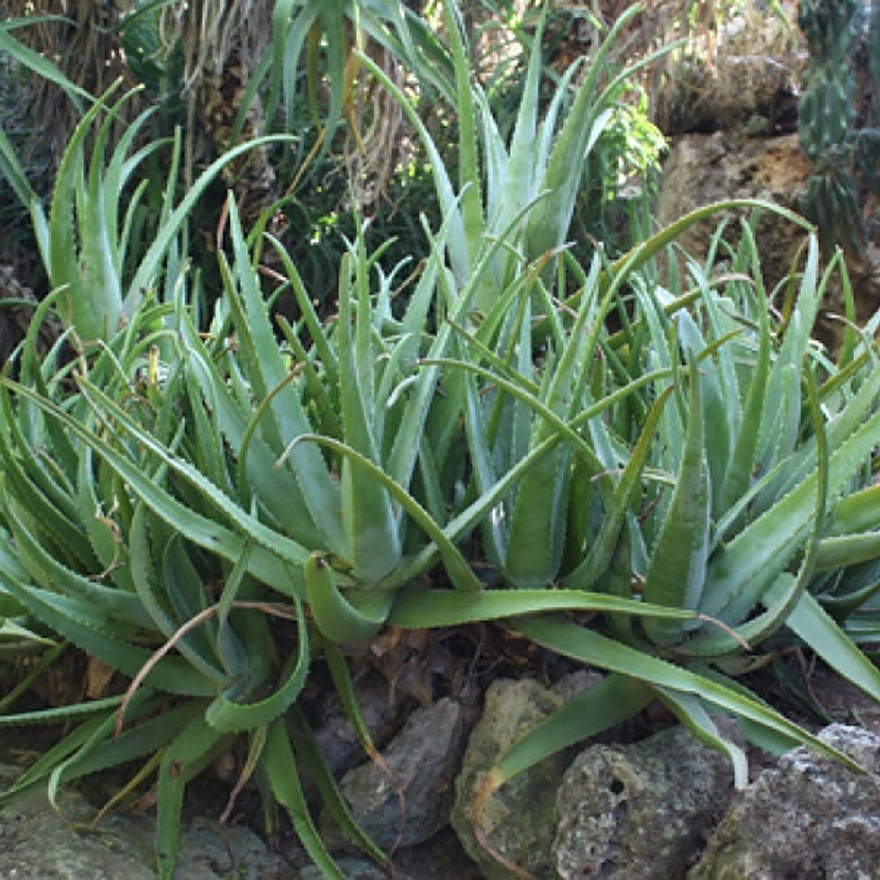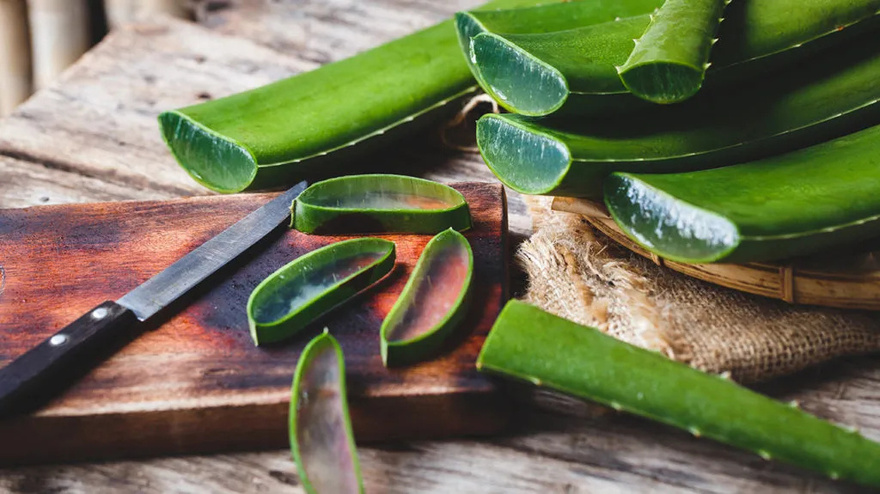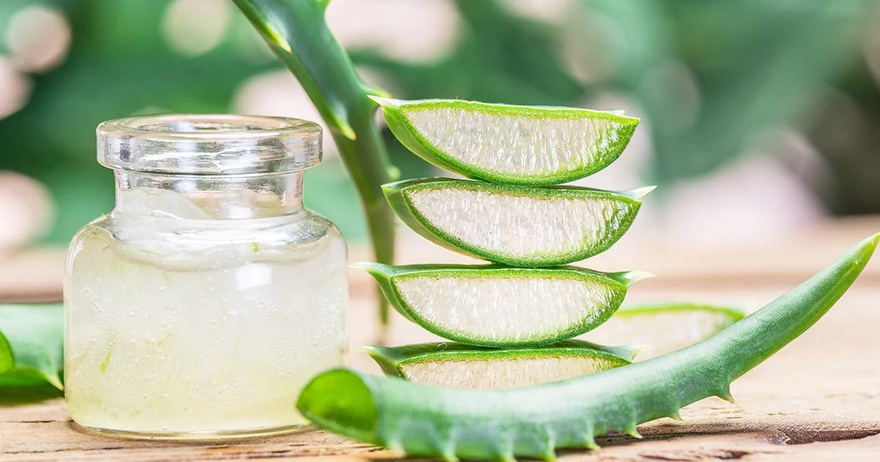When you think of aloe vera, the first thing that probably comes to mind is its ability to soothe sunburns. For most of us, aloe is that trusty green gel we reach for after spending too much time in the sun, offering quick relief to red, inflamed skin. However, limiting aloe to just sunburn treatment would be underestimating its incredible potential. Aloe vera is packed with skin-friendly properties, making it an essential ingredient for year-round skincare.
Let’s explore three amazing reasons why you should use aloe 365 days a year, beyond its sunburn-relieving fame.

1. Aloe Vera Soothes and Heals the Skin
The Power of Soothing
Aloe vera is renowned for its soothing properties, particularly for burns, irritations, and inflammation. Whether you’re dealing with mild irritation, redness, or swelling, aloe’s calming effects are nothing short of miraculous. This powerful plant contains a combination of antioxidants, anti-inflammatory agents, and enzymes that make it an essential remedy for a variety of skin conditions.
The antioxidant enzymes found in aloe, such as glutathione peroxidase and superoxide dismutase, are critical in neutralizing the effects of free radicals on the skin. Free radicals contribute to oxidative stress, which can cause inflammation and premature aging. By combating these harmful molecules, aloe helps reduce inflammation and promote healthier, calmer skin.
Speeding Up Wound Healing
Another impressive benefit of aloe is its ability to accelerate wound healing. Aloe promotes the production of fibroblasts, which are responsible for producing collagen. This explains why aloe vera is often recommended for burns, cuts, and scrapes, and why it can be a valuable post-treatment remedy for skin after undergoing procedures like lasers or chemical peels. If you experience discomfort after a skin treatment, aloe can provide immediate relief by reducing inflammation, promoting cell regeneration, and soothing irritation.
Natural Antimicrobial Properties
Aloe vera’s antimicrobial properties are particularly useful for protecting compromised skin. Its antifungal, antibacterial, and antiviral agents help prevent infections on damaged or irritated skin. Whether you’re treating minor cuts, burns, or sensitive skin after a treatment, aloe acts as a gentle shield against potential infections.
Aloe for Sunburns—and Beyond
While aloe is indeed a sunburn savior, its benefits extend far beyond post-sun care. It’s ideal for daily use to nourish and protect your skin from everyday environmental stressors. In colder months, aloe provides much-needed moisture and protection for dry, irritated skin. Year-round, its natural cooling effect can help calm skin exposed to pollution, harsh weather, or even the dry air from indoor heating.

2. Aloe Vera Fights Acne and Prevents Signs of Aging
Aloe as an Acne-Fighter
If you struggle with acne-prone skin, aloe vera may be the hidden gem your skincare routine is missing. Thanks to its anti-inflammatory and antimicrobial properties, aloe helps reduce redness and swelling caused by breakouts. Its ability to regulate sebum production can also prevent clogged pores, a key contributor to acne.
But aloe doesn’t just stop at preventing acne. It’s also effective at healing acne scars. The plant’s ability to stimulate collagen production aids in skin regeneration, meaning that regular use of aloe can help smooth out existing scars and dark spots, while its healing properties reduce the severity of new acne lesions.
Anti-Aging Benefits
Aloe is not only for younger skin dealing with breakouts—it’s also a powerful ally in the fight against aging. The vitamins and enzymes present in aloe, especially vitamins C and E, are essential for skin elasticity and hydration. Vitamin C, in particular, helps boost collagen synthesis, leading to firmer, more youthful skin. Collagen is the protein responsible for maintaining the structure of your skin, and as we age, our body’s natural collagen production decreases. Aloe vera can help combat this decline by encouraging collagen production, making skin appear plumper and smoother.
Aloe’s rich water content also makes it a fantastic natural moisturizer. It hydrates the skin without leaving a greasy residue, making it suitable for all skin types, including oily and combination skin. Proper hydration is key to preventing fine lines and wrinkles, and aloe delivers moisture deep into the skin, leaving it soft, supple, and radiant.

3. Aloe Vera Promotes Healthy Hair and Scalp
Hydrating the Scalp
It’s not just your skin that benefits from aloe vera—your hair and scalp can reap the rewards, too. If you experience a dry, itchy, or flaky scalp, aloe can be a game-changer. Its high water content helps moisturize the scalp, while its anti-inflammatory properties reduce irritation and flaking often caused by conditions like dandruff or eczema. A healthy scalp is the foundation of healthy hair, and aloe’s soothing abilities can help restore balance to even the most sensitive scalp types.
Strengthening Hair
In addition to soothing the scalp, aloe vera can also be used as a hair mask to improve the overall health and strength of your hair. The enzymes and nutrients in aloe help remove dead skin cells from the scalp, promoting hair growth and preventing hair breakage. Aloe contains essential vitamins, such as vitamin B-12 and folic acid, which are known to strengthen hair follicles and reduce hair thinning.
Regular use of aloe vera as a hair treatment can result in shinier, smoother, and healthier hair. Simply apply aloe gel to your scalp and hair, leave it on for 15-20 minutes, and then wash it out with your regular shampoo. Your hair will feel refreshed, and over time, it will become stronger and more resilient.
Addressing Hair Loss
For those concerned about hair loss, aloe’s ability to boost blood circulation to the scalp can support hair growth. A healthy scalp environment, free from excess oil, dandruff, and inflammation, allows hair to grow more freely. While aloe alone may not solve all hair loss issues, it can complement a broader hair care regimen to promote healthier hair and scalp conditions.
Best Skin Types for Aloe Vera
One of the best things about aloe vera is that it’s generally suitable for all skin types, even the most sensitive ones. Its gentle nature means that people with easily irritated or reactive skin can often use aloe vera without fear of breakouts or irritation. It’s an excellent option for those looking for a natural, fragrance-free moisturizer or treatment for skin issues like dryness, redness, or acne.
However, it’s worth noting that while aloe is gentle for most, it’s still possible to have an allergic reaction to it. Symptoms like itching, redness, or swelling after using aloe vera might indicate an allergy, so it’s important to do a patch test before applying it to your face or other sensitive areas of your body. If you experience any discomfort, discontinue use and consult with a dermatologist.
Additionally, not all aloe vera products are created equal. Some over-the-counter aloe products contain additives, preservatives, or alcohol, which can diminish its healing properties or even cause irritation. For the best results, look for products with pure aloe vera gel or make your own aloe gel at home from an aloe plant.

Conclusion: Aloe Vera 365 Days a Year
While aloe vera may be synonymous with sunburn relief, its versatility and wealth of skin benefits make it a year-round skincare essential. From soothing inflamed skin and treating acne to fighting the signs of aging and promoting healthy hair, aloe deserves a spot in your daily beauty routine—regardless of the season.
Whether you’re applying it as a post-procedure treatment, using it to strengthen your hair, or moisturizing your face, aloe vera provides nourishment and healing that can benefit everyone. The next time you reach for that bottle of aloe, remember: it’s not just for summer sunburns—it’s a 365-day solution for healthy, glowing skin and hair.






























